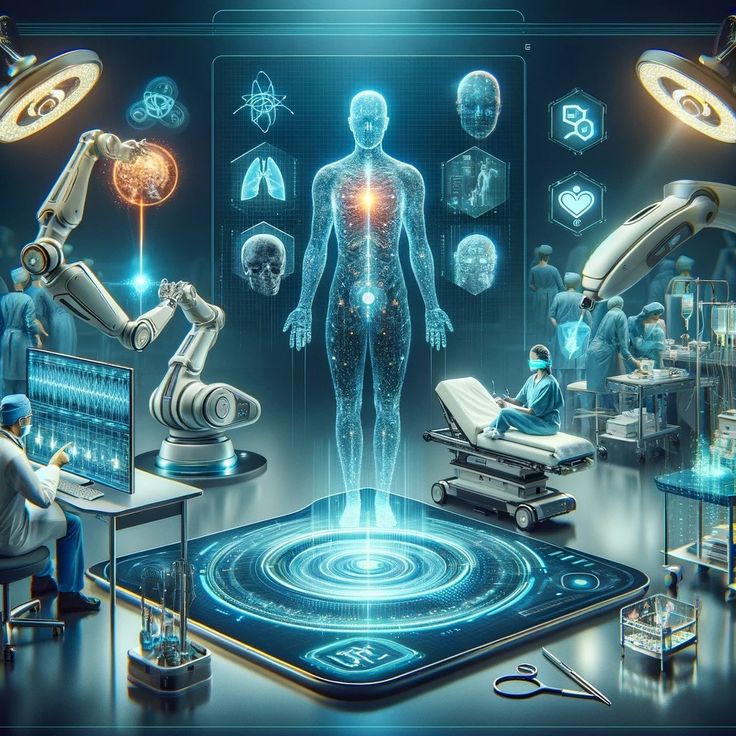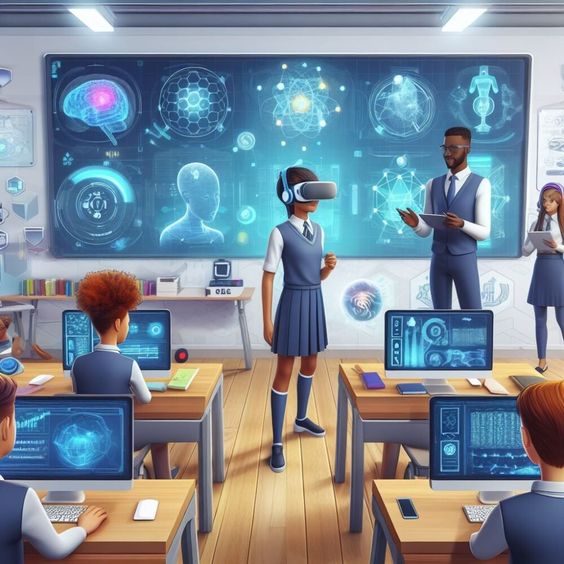
health sector and the introduction of AI
- Healthcare
- Nov 02, 2021
The integration of artificial intelligence (AI) into the healthcare sector represents a groundbreaking shift in how medical services are delivered, diagnoses are made, treatments are administered, and patient outcomes are improved. This transformative technology is revolutionizing every aspect of healthcare, from clinical decision-making and disease prevention to administrative tasks and patient engagement.
One of the most significant contributions of AI in healthcare is its ability to enhance diagnostic accuracy and improve patient outcomes. AI-powered diagnostic tools, such as medical imaging algorithms and pattern recognition systems, can analyze medical images, pathology slides, and other diagnostic tests with unparalleled speed and accuracy. By leveraging machine learning algorithms trained on vast datasets of medical images and patient records, these tools can detect subtle abnormalities, identify patterns indicative of disease, and assist clinicians in making more accurate diagnoses. This not only reduces the risk of diagnostic errors but also enables earlier detection and intervention, leading to better treatment outcomes and improved patient survival rates.
Moreover, AI is transforming the way healthcare providers deliver personalized treatment plans and optimize patient care. Through predictive analytics and risk stratification models, AI algorithms can analyze patient data, including medical history, genetic information, lifestyle factors, and real-time biometric data, to identify individuals at high risk of developing certain diseases or experiencing adverse health events. This enables healthcare providers to proactively intervene, implement preventive measures, and tailor treatment plans to meet each patient's unique needs, ultimately improving health outcomes and reducing healthcare costs.
In addition to improving clinical decision-making and patient care, AI is also revolutionizing medical research and drug discovery processes. AI-powered algorithms can analyze vast amounts of biomedical data, including genomic sequences, protein structures, and drug interactions, to identify potential targets for drug development, predict the efficacy and safety of new drugs, and accelerate the drug discovery process. By leveraging AI-driven drug discovery platforms, pharmaceutical companies can reduce the time and cost associated with bringing new drugs to market, ultimately expanding treatment options for patients and addressing unmet medical needs more effectively.
Furthermore, AI is revolutionizing healthcare administration and operational efficiency, streamlining administrative tasks, optimizing resource allocation, and enhancing the overall healthcare experience for patients and providers alike. AI-powered chatbots and virtual assistants can automate appointment scheduling, answer patient inquiries, and provide personalized health information and guidance, freeing up healthcare staff to focus on more complex and high-value tasks. Additionally, AI-driven predictive analytics models can forecast patient demand, optimize staffing levels, and improve hospital workflows, leading to shorter wait times, reduced healthcare costs, and enhanced patient satisfaction.
However, the widespread adoption of AI in healthcare also raises important ethical, legal, and regulatory considerations that must be addressed to ensure patient safety, privacy, and trust. As AI algorithms become increasingly complex and autonomous, it is essential to establish robust regulatory frameworks, data governance policies, and ethical guidelines to govern the development, deployment, and use of AI technologies in healthcare responsibly. Moreover, efforts to address issues such as algorithmic bias, data privacy, and cybersecurity are critical to building public trust and confidence in AI-powered healthcare systems.
In conclusion, the use of artificial intelligence in the healthcare sector holds immense promise for improving patient outcomes, enhancing clinical decision-making, advancing medical research, and transforming healthcare delivery models. By harnessing the power of AI-driven technologies to augment human intelligence, optimize healthcare workflows, and personalize patient care, we can unlock new opportunities for innovation and collaboration in the pursuit of better health for all. However, realizing the full potential of AI in healthcare requires a concerted effort to address ethical, legal, and regulatory challenges and ensure that AI technologies are developed and deployed responsibly, ethically, and inclusively.
How will AI Care will help better your field



